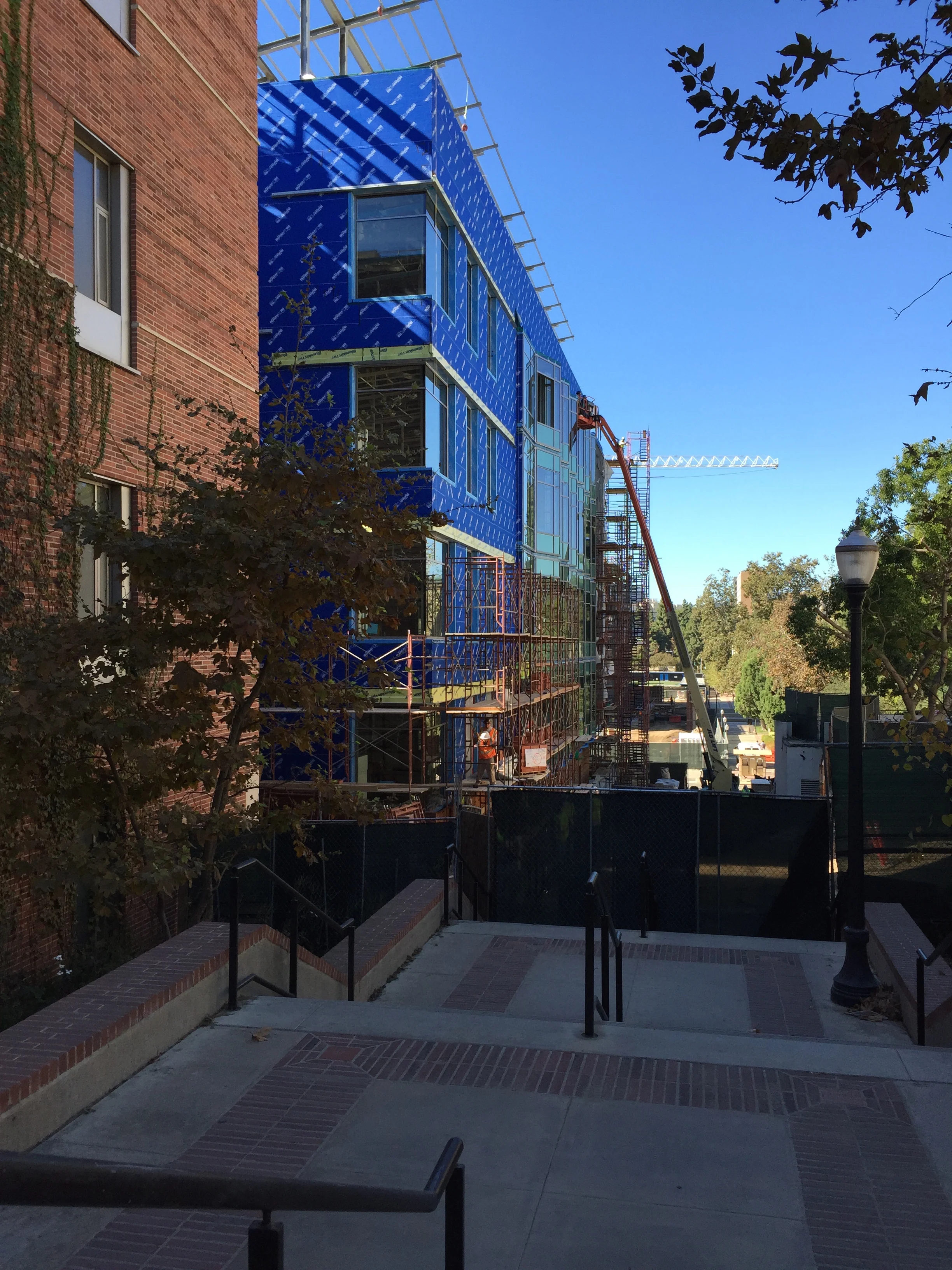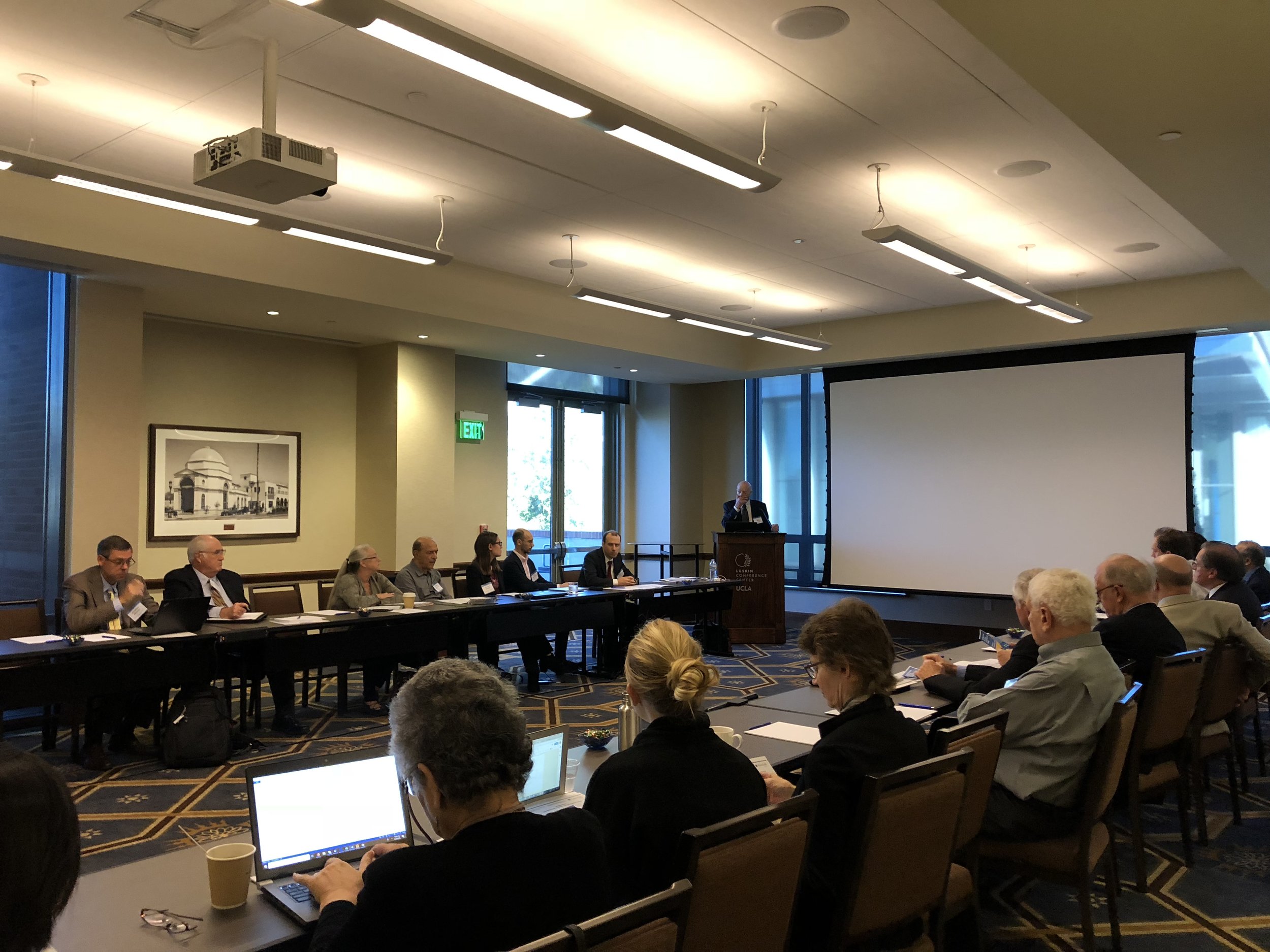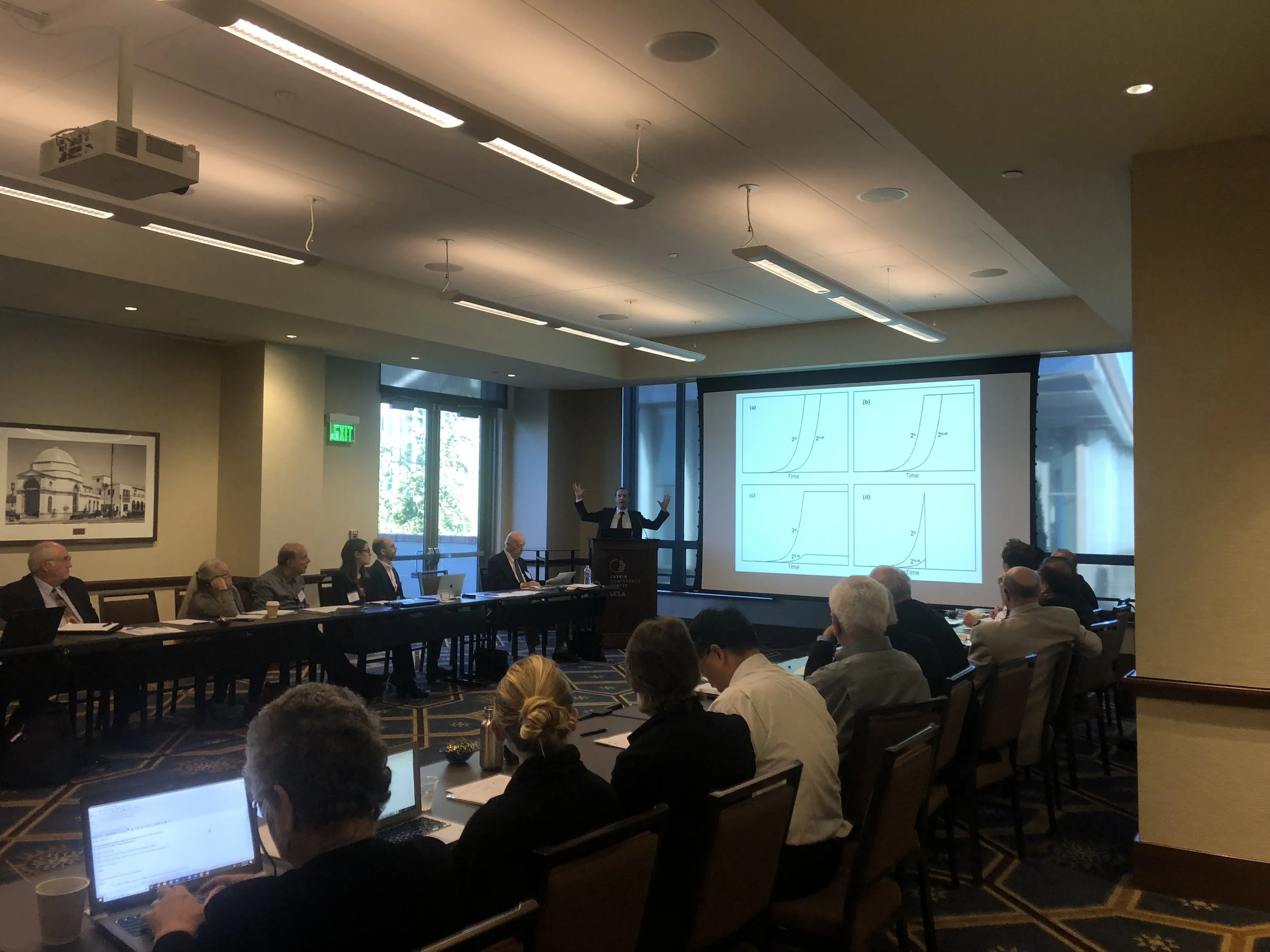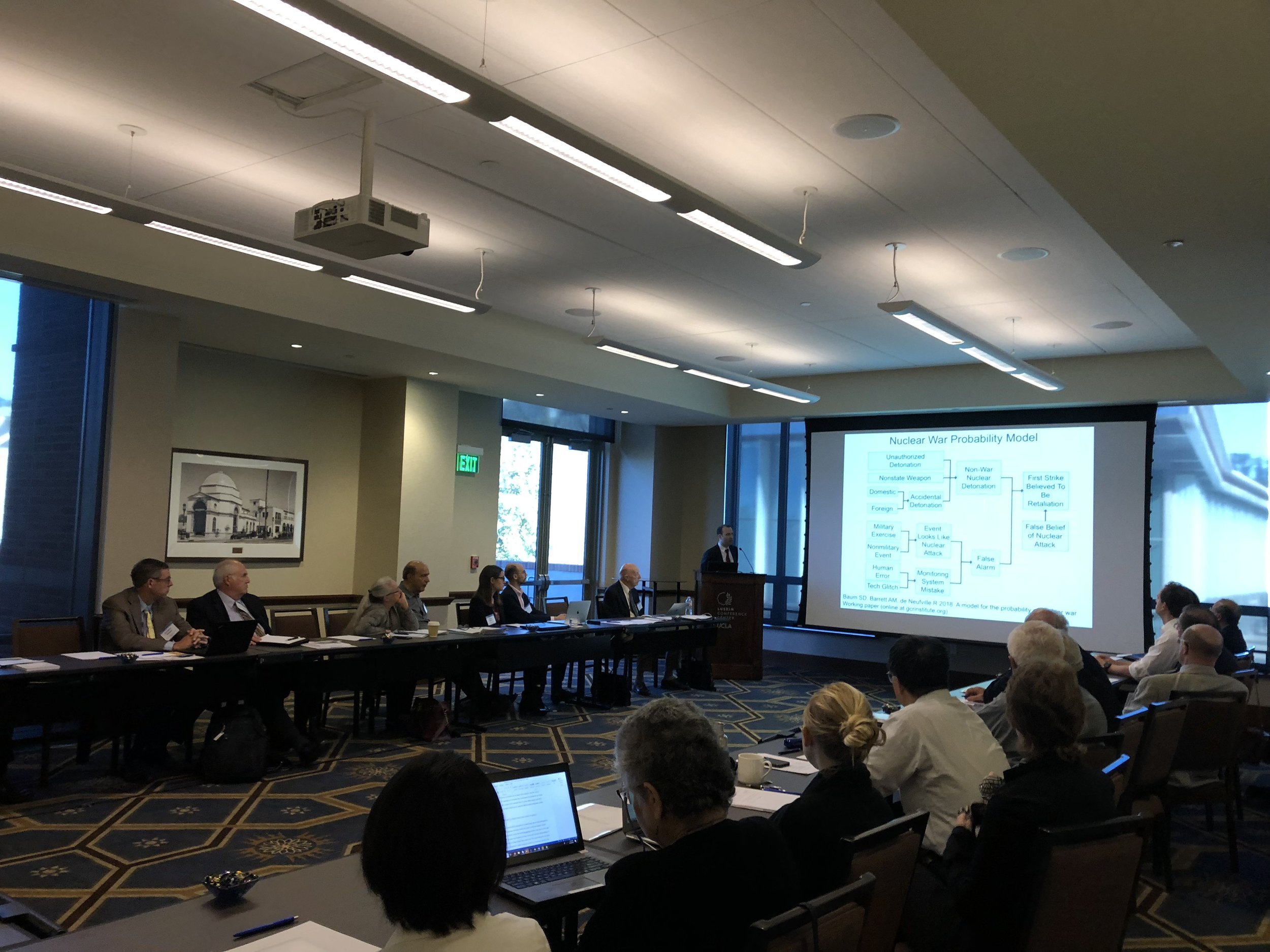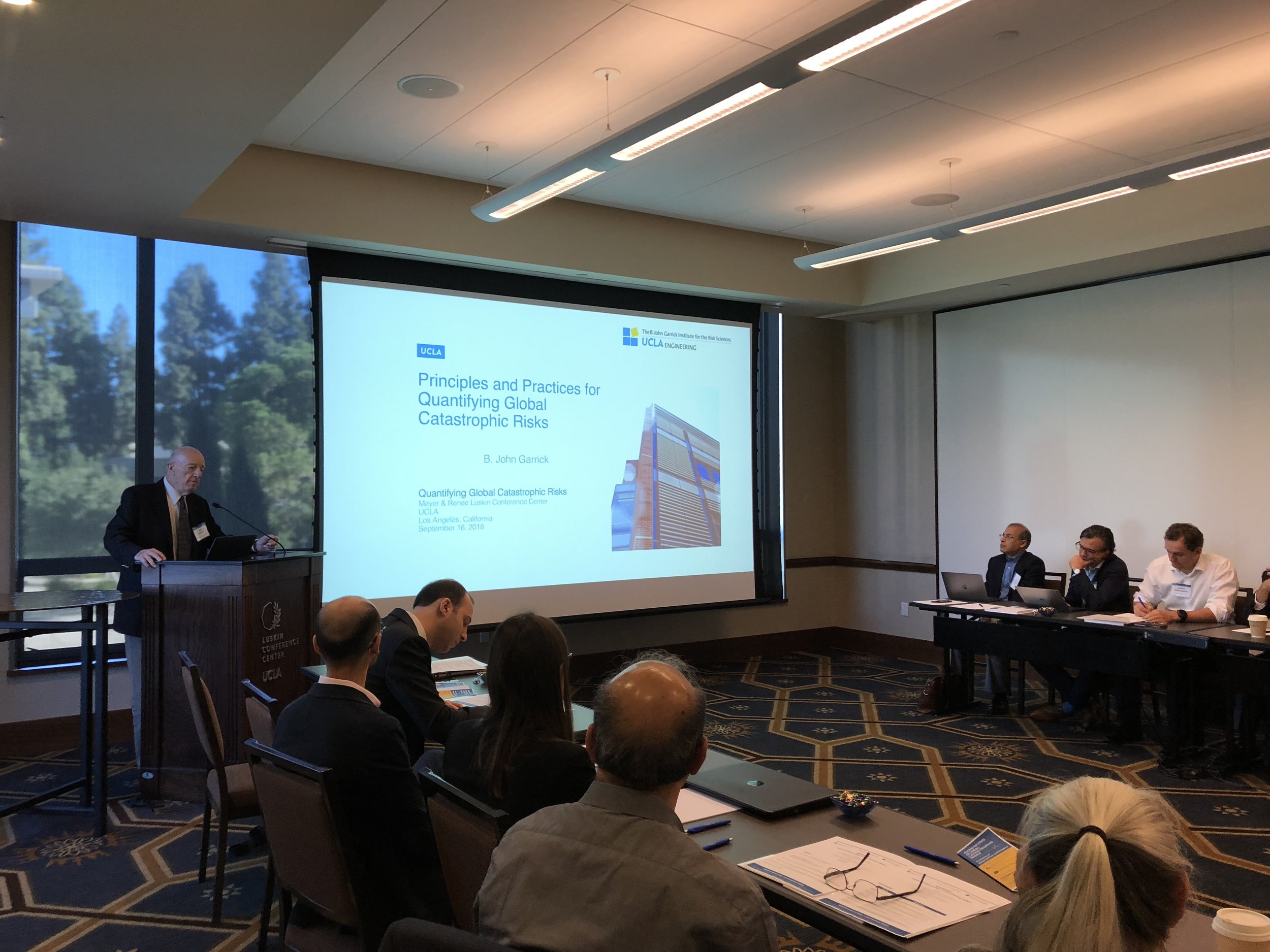International Workshop on Quantifying Global Catastrophic Risks
/A one-day workshop was held in conjunction with the PSAM 14 International Conference on Probabilistic Safety Assessment and Management at the Luskin Convention Center on the UCLA campus September 16-21, 2018. The workshop was by invitation and involved approximately 30 scholars and practitioners from academia, research institutions, and the private sector to participate. The sponsors of the workshop were The B. John Garrick Institute for the Risk Sciences, University of California, Los Angeles; The Centre for the Study of Existential Risk, University of Cambridge, United Kingdom; and the Global Catastrophic Risk Institute, USA.
The workshop was an attempt to be part of the “discourse” to better characterize global catastrophic risks. The particular topic chosen was the challenges associated with quantifying global catastrophic risks. There were six presentations on various facets of quantification methodology, followed by approximately three hours of discussion. While challenges remain, the general conclusion was that contemporary methods of quantitative risk assessment could be extended to global risks. The main difference between quantifying global risks and the current methods for assessing complex facility and natural hazards risks is in the form of the supporting evidence. For global catastrophic risks the supporting evidence for quantifying the risks is primarily of an indirect nature such as biological and geological markers indicating that the events occurred, as opposed to direct evidence such as observations of the events actually occurring. There was an urgent call by the workshop participants to extend the quantitative methods of analysis to recovery actions following catastrophic events.
The workshop was a tremendous success and the participants greatly encouraged follow-on meetings and conferences.

